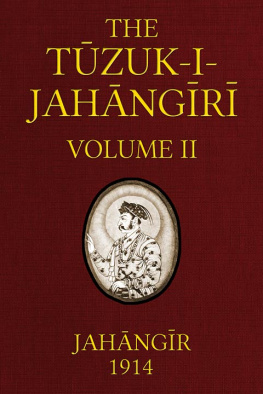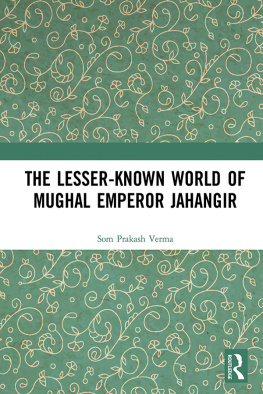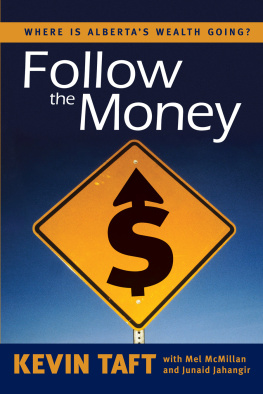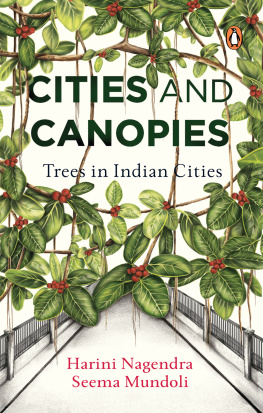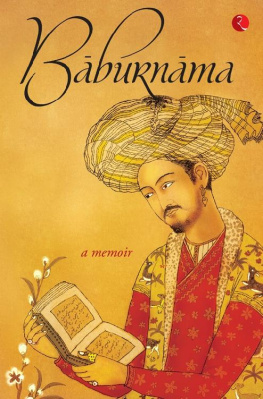Nuru-d-din Jahangir Padshah - The Tuzuk-i-Jahangiri: or, Memoirs of Jahangir
Here you can read online Nuru-d-din Jahangir Padshah - The Tuzuk-i-Jahangiri: or, Memoirs of Jahangir full text of the book (entire story) in english for free. Download pdf and epub, get meaning, cover and reviews about this ebook. year: 2016, publisher: Project Gutenberg, genre: History. Description of the work, (preface) as well as reviews are available. Best literature library LitArk.com created for fans of good reading and offers a wide selection of genres:
Romance novel
Science fiction
Adventure
Detective
Science
History
Home and family
Prose
Art
Politics
Computer
Non-fiction
Religion
Business
Children
Humor
Choose a favorite category and find really read worthwhile books. Enjoy immersion in the world of imagination, feel the emotions of the characters or learn something new for yourself, make an fascinating discovery.
- Book:The Tuzuk-i-Jahangiri: or, Memoirs of Jahangir
- Author:
- Publisher:Project Gutenberg
- Genre:
- Year:2016
- Rating:3 / 5
- Favourites:Add to favourites
- Your mark:
- 60
- 1
- 2
- 3
- 4
- 5
The Tuzuk-i-Jahangiri: or, Memoirs of Jahangir: summary, description and annotation
We offer to read an annotation, description, summary or preface (depends on what the author of the book "The Tuzuk-i-Jahangiri: or, Memoirs of Jahangir" wrote himself). If you haven't found the necessary information about the book — write in the comments, we will try to find it.
The Tuzuk-i-Jahangiri: or, Memoirs of Jahangir — read online for free the complete book (whole text) full work
Below is the text of the book, divided by pages. System saving the place of the last page read, allows you to conveniently read the book "The Tuzuk-i-Jahangiri: or, Memoirs of Jahangir" online for free, without having to search again every time where you left off. Put a bookmark, and you can go to the page where you finished reading at any time.
Font size:
Interval:
Bookmark:
The Project Gutenberg EBook of Tuzuk-i-Jahangiri: or, Memoirs of Jahangir
(volume 2 of 2), by Alexander Roger and Henry Beveridge and Nuru-d-din Jahangir
This eBook is for the use of anyone anywhere in the United States and most
other parts of the world at no cost and with almost no restrictions
whatsoever. You may copy it, give it away or re-use it under the terms of
the Project Gutenberg License included with this eBook or online at
www.gutenberg.org. If you are not located in the United States, you'll have
to check the laws of the country where you are located before using this ebook.
Title: Tuzuk-i-Jahangiri: or, Memoirs of Jahangir (volume 2 of 2)
Author: Alexander Roger
Henry Beveridge
Nuru-d-din Jahangir
Release Date: December 11, 2016 [EBook #53716]
Language: English
*** START OF THIS PROJECT GUTENBERG EBOOK TUZUK-I-JAHANGIRI ***
Produced by Jeroen Hellingman and the Online Distributed
Proofreading Team at http://www.pgdp.net/ for Project
Gutenberg.
Tzuk-i-Jahngr
Memoirs of Jahngr
Alexander Rogers
I.C.S. (Retired)
Edited by
Henry Beveridge
I.C.S. (Retired)
After an interval of about five years, the second volume of Mr. Alexander Rogers translation of Jahngrs Memoirs has been published by the Royal Asiatic Society. It is a smaller work than the first volume, for it only extends over six years of the reign, as against the twelve years of its predecessor. Even then it does not include the whole of the reign, for that lasted twenty-two years. The two volumes, however, contain all that Jahngr wrote or supervised. It will be found, I think, that the present volume is fully as interesting as its predecessor. The accounts of the Zodiacal coinage (pp. 6 and 7), and of the comet, or new star (p. 48), the notice of the Plague in Agra (pp. 6567), and the elaborate description of Kashmr, under the chronicle of the 15th year, are valuable, and a word should be said for the pretty story of the King and the Gardeners daughter (p. 50), and for the allusions to painters and pictures.
If Bbur, who was the founder of the Moghul Empire in India, was the Csar of the East, and if the many-sided Akbar was an epitome of all the great Emperors, including Augustus, Trajan, Hadrian, Marcus Aurelius, Julian, and Justinian. Jahngr was certainly of the type of the Emperor Claudius, and so bore a close resemblance to our James I. All three were weak men, and under the influence of their favourites, and all three were literary, and at least two of them were fond of dabbling in theology. All three were in their wrong places as rulers. Had James I. (and VI. of Scotland) been, as he half wished, the Keeper of the Bodleian, and Jahngr been head of a Natural History Museum, they would have been better and happier men. Jahngrs best points were his love of nature and powers of observation, and his desire to do justice. Unfortunately, the last of these merits was vitiated by a propensity for excessive and recondite punishments. Like his father, grandfather, and great-grandfather, he was addicted to drugs and alcohol, and he shortened his life in this way. He made no addition to the imperial territories, but, on the contrary, diminished them by losing Qandahar to the Persians. But possibly his peaceful temper, or his laziness, was an advantage, for it saved much bloodshed. His greatest fault as a king was his subservience to his wife, Nr-Jahn, and the consequent quarrel with his son, Shah Jahan, who was the ablest and best of his male children. The last years of his reign were especially melancholy, for he suffered from asthma and other diseases; and he had to endure the ignominy of being for a while a captive to one of his own servantsMahbat Khn. He died on the borders of Kashmir, when on his way to Lahore, in October, 1627, in the fifty-ninth year of his age, and was buried at Shhdara, near Lahore, where his widow, Nr-Jahn, and her brother are also interred. At the time of his death his son Shah Jahan was at Junair in the Deccan, and there the news was conveyed in a wonderfully short time by a Hindu courier. Jahngr was succeeded by Shah Jahan, who lost no time in getting rid of his relatives, for, like the Turk, he bore no kinsman near the throne. Indeed, he is strongly suspected of having killed his elder brother, Khusrau, several years before.
I am indebted to Mr. Ellis, of the India Office, for revising the proofs.
In the Catalogue of Manuscripts in the Library of Trinity College, Dublin, p. 416, mention is made of a history of Hindustan during the reign of Jahngr, in two volumes, with paintings (Ouseley MSS.). I have recently ascertained that the MS. is only a modern copy of the Iqbl-nma.
H. Beveridge.
| Page |
| 1 |
| 78 |
| 130 |
| 199 |
| 253 |
| 294 |
| 301 |
On the eve of Wednesday, the 23rd Rabu-l-awwal, 1027 (March 10, 1618), after the lapse of fourteen and a half ghars, the entrance of the Sunthat is, H.M. the Great Lightthe Benefactor of the Universe, into the constellation of the Ram, took place. Twelve years had now passed from the august Accession of this suppliant at the throne of God, in prosperity, and the New Year began in joy and thanksgiving. On Thursday, 2 Farwardn, Divine month, the festival of my Lunar weighment took place, and the fifty-first year of the age of this suppliant at Gods throne began with rejoicings. I trust that my life will be spent in the doing of Gods Will, and that not a breath of it will pass without remembering Him. After the weighment had been finished, a fresh feast of joy was arranged, and my domestic servants celebrated the day with brimming cups.
On this day af K. (Nr-Jahns brother), who held the rank of 5,000 with 3,000 horse, was favoured by the grant of 4,000 two-horsed and three-horsed troopers, and Sbit K. was raised to the office of Examiner of Petitions. I bestowed the post of the Artillery on Mutamid K. A Kachh (Cutch) horse had been brought as an offering by the son of Dilwar K. No horse so good as this had come into my establishment till I encamped in Gujarat, and as M. Rustam showed a great liking for it, I presented it to him. On the Jm were conferred four ringsviz., diamond, ruby, emerald, and sapphire or demon hill, I called these two elephants Rvan Sar and Pvan Sar, these being the names of two demons. On Tuesday, the 14th, and Kam-shamba (Wednesday), the 15th, I halted.
On the eve of Thursday, the 16th, I marched, and halted at the stage of Kara Bra. Hakm Beg,had obtained the governorship of Kashmir, had promised that he would conquer in the space of two years Tibet and Kishtwr, and the promised time had elapsed, and he had not fulfilled this service, I removed him, and promoted Dilwar K. Kkar to the Government of Kashmir. I gave him a dress of honour and an elephant, and sent him off. He also made a promise in writing that in the course of two years he would conquer Tibet and Kishtwr. Badu-z-Zamn, s. Shhrukh M. came from the jagir he held in Sultnpr, and had the good fortune to kiss the threshold. Having at this time honoured Qsim K. with a jewelled dagger and an elephant, I dismissed him to the Government of the Punjab.
On the night of Tuesday, the 21st, I marched from the stage mentioned, and turned the reins of the army of prosperity towards Ahmadbd. As in consequence of the great heat and the corruption of the air I would have had to undergo much hardship, and would have had to traverse a long distance before reaching Agra, it occurred to me not to proceed at this hot season to the capital. As I heard much praise of the rainy season in Gujarat, and there was no report about the evil reputation of Ahmadbd (see
Font size:
Interval:
Bookmark:
Similar books «The Tuzuk-i-Jahangiri: or, Memoirs of Jahangir»
Look at similar books to The Tuzuk-i-Jahangiri: or, Memoirs of Jahangir. We have selected literature similar in name and meaning in the hope of providing readers with more options to find new, interesting, not yet read works.
Discussion, reviews of the book The Tuzuk-i-Jahangiri: or, Memoirs of Jahangir and just readers' own opinions. Leave your comments, write what you think about the work, its meaning or the main characters. Specify what exactly you liked and what you didn't like, and why you think so.

